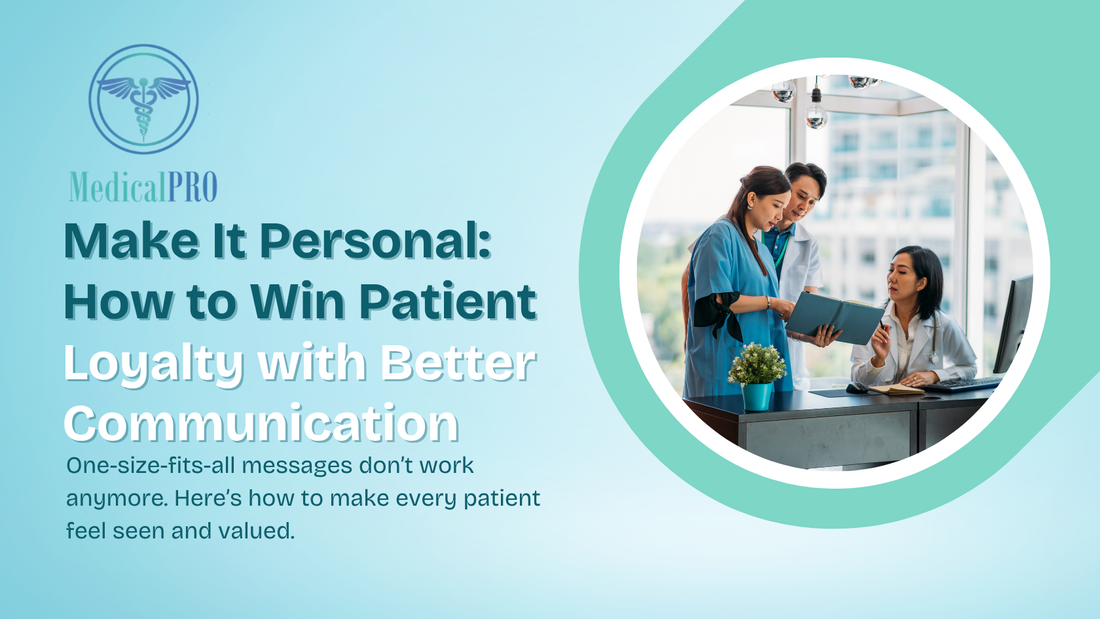One-size-fits-all messages don’t work anymore. Here’s how to make every patient feel seen and valued.
When Patients Feel Like Just Another Number
Dr. Aileen Navarro runs a pediatric clinic in Cebu. She’s warm, skilled, and genuinely cares for her patients. But she recently noticed something strange: long-time families started going silent. Fewer follow-ups. Missed appointments. One parent even transferred her child to another clinic without explanation.
When Dr. Aileen called to check in, the mother replied, “We just didn’t feel heard anymore. Everything felt so rushed. I know you’re busy, but… I felt forgotten.”
That hit hard.
Because in today’s healthcare landscape—especially in the Philippines and Indonesia—being clinically competent isn’t enough. Patients want to feel personally cared for.
Why Communication Is the New Currency of Trust
Let’s be honest: most clinics are under pressure.
Schedules are full. Staff are stretched. Doctors juggle back-to-back consultations. So, it’s easy to fall into rushed routines:
- Sending generic appointment reminders
- Handing out the same printed instructions to every patient
- Forgetting to check in after a major procedure
But to your patients, every message is a reflection of your care.
When you treat them like individuals—not just names on a list—they notice. And they stay loyal.
The Real Cost of Generic Communication
Here’s what happens when your communication isn’t personalized:
- Patients forget appointments because reminders lack context
- Follow-ups go unattended because they don’t feel urgent
- Referrals drop off because your brand doesn’t feel “different”
- Feedback isn’t given because patients assume you’re too busy to listen
Even worse, patients who feel ignored won’t always complain—they’ll quietly switch providers.
Personalization Doesn’t Mean More Work—It Means Smarter Systems
The good news? You don’t have to hire more people or write 100 different emails a day.
With digital tools like MedicalPro, you can personalize communication at scale:
✅ Smart Reminders
Send messages with the patient’s name, appointment type, and even friendly notes like “Don’t forget to bring your lab results.”
✅ Tailored Instructions
Instead of one-size-fits-all advice, send condition-specific guidance or post-visit instructions based on the diagnosis.
✅ Automated Follow-Ups
Send check-ins after a procedure: “Hi, Ms. Ana. How is your recovery from the tooth extraction? Reply 1 if all is good, 2 if you’d like to speak to a nurse.”
✅ Feedback Collection
Use quick surveys to ask, “How did we do today?” It shows you care—and gives insights to improve.
What This Looks Like in Real Clinics
A dermatology clinic added simple custom messages to their reminder system. Within weeks, patients responded more warmly, cancellation rates dropped, and feedback improved.
One patient even shared, “I love how your clinic always knows what I need before I even ask. It feels like you really pay attention.”
That’s the power of personalization.
Start with Simple Changes
If you’re wondering how to make this happen in your clinic without overwhelming your team, here’s a simple plan:
- Audit your current communication: What feels cold, rushed, or too generic?
- Pick 2 touchpoints to personalize first—maybe appointment reminders and post-visit follow-ups.
- Use templates with merge fields (like name, condition, last visit) to keep it efficient.
- Review results monthly: Are patients engaging more? What’s their feedback?
It's Not About Technology—It's About Thoughtfulness
Patients don’t expect you to write love letters. But they want to know you care.
When your messages:
- Say their name,
- Acknowledge their condition,
- And check in after a visit—
You create a connection that no AI chatbot or big hospital system can match.
Build Loyalty Before They Walk Out the Door
Most clinics only focus on what happens during the visit.
But real loyalty is built:
- When a parent gets a thank-you text after a child’s checkup
- When an elderly patient is reminded to refill their meds
- When your team remembers that Ana prefers morning appointments
These little things aren’t just extras. They’re everything.
Final Thought: People Remember How You Made Them Feel
In healthcare, every interaction is an opportunity.
Patients will forgive long queues and modest facilities—if they feel seen, valued, and heard.
Start by improving how you communicate. Not louder. Just better.
Need help building a smarter communication flow in your clinic?
MedicalPro helps clinics like yours create personalized, automated, and patient-friendly messaging—without adding to your team’s workload.
Try one small change today. Your patients will feel it—and they’ll come back.







